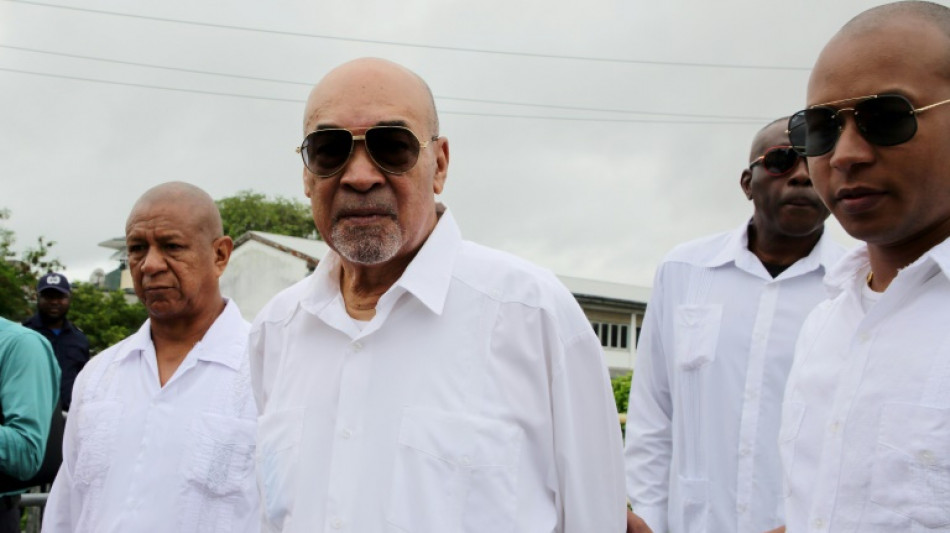

Suriname's Bouterse admits hearing shots but denies ordering opponents killed
Former Suriname leader Desi Bouterse on Thursday admitted in court that he heard gunshots on the day 15 political prisoners were murdered in 1982, but again denied that he ordered their executions.
Bouterse, the former strongman in this South American country who is contesting his 2019 conviction over the killings, said he believed the gunshots were part of an effort to intimidate the inmates, not to kill them, and that he wasn't present.
"It wasn't a succession of shots, which would be cause for me to ask about it," the 77-year-old Bouterse testified at the trial.
Bouterse first took power in a 1980 coup and in December 1982 allegedly rounded up 15 political opponents -- including lawyers, journalists and businessmen -- for execution at the military barracks at Fort Zeelandia in the capital Paramaribo.
He has always denied the allegations, claiming the victims were held for plotting a counter-coup with the help of the CIA, and were shot while trying to escape.
"It was my responsibility to pick them up and take them down (to the barracks), not to... kill them. If I knew that they would be killed, I would never have ordered to pick them up," Bouterse said, insisting the men were trying to overthrow him.
The proceedings in Paramaribo have resumed after the court rejected a demand for dismissal by the former president, who argued one of the judges was biased due to a distant family connection with one of the victims.
Witness testimony read during the trial offered varying accounts of when the killings took place on December 8, 1982.
Bouterse accused his number two Paul Bhagwandas, who died in 1996, of being responsible for Fort Zeelandia when he left the scene.
For Hugo Essed, one of the lawyers for relatives of the victims, no proof has ever been offered that a coup was being planned, nor that Bouterse had ordered that a plane be prepared to expel the suspects to another country.
Bouterse was sentenced to 20 years in prison in 2019, but he was convicted in absentia, allowing him to file an objection that forced the court to reconsider his case, which was reopened in January 2020.
He has yet to serve any time behind bars in connection with the case despite his conviction, as under Surinamese law, he cannot be arrested until he has exhausted all appeals processes.
Bouterse stepped down in 1987 under international pressure, but returned to power in 1990 in a second, bloodless coup. He left office a year later but was then elected president in 2010 and remained in the post until 2020.
In 1999, a court in the Netherlands -- Suriname's former colonial ruler -- sentenced Bouterse to 11 years in prison in absentia for cocaine smuggling, another charge he denies.
Prosecutors will make their arguments for punishment on January 31.
O.Somerville--NG



